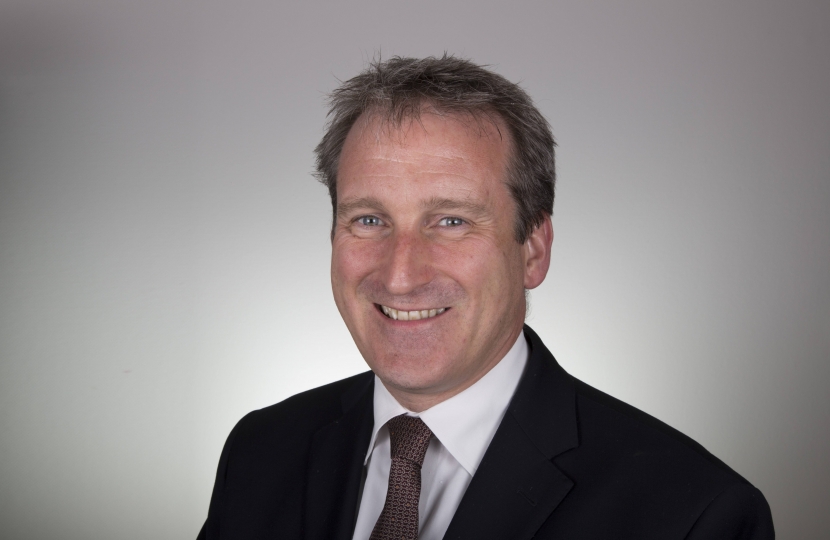
Damian has welcomed the Spring Statement delivered by The Chancellor of the Exchequer this week, which shows that the economy continues to grow, continues to create jobs and continues to beat expectations.
Following eight years of consecutive growth, the economy is now nearly 17 percent bigger than it was in 2017, and the OBR has increased their estimate for growth in 2017 from 1.5 to 1.7 per cent, and forecast stronger growth of 1.5 percent for 2018.
Debt is also beginning to fall - with the first sustained fall in 17 years – but remains too high, equal to around £65,000 per household. The cost of debt interest payments is around £50 billion each year, which is more than spend on the police and armed forces together. And although the government remains committed to controlling public spending, investment in public services continues, with around £60 billion invested since the Autumn Statement in 2106.
Manufacturing has grown for the longest consecutive period in 50 years, and there are 1.2 million more businesses across the UK than there were in 2010. Employment has increased by 3 million since 2010, with the unemployment rate close to a 40 year low.
Importantly, the OBR expects inflation to fall over the next 12 months, and wages to rise faster than prices over the next 5 years. And disposable income per person is now 4.4 percent higher in real terms than it was in 2010, while income inequality is lower than in 2010 and is close to its lowest level since the mid-1980s.
Damian said:
“Our long term prosperity relies on a strong economy, and that is why the government’s balanced approach is so important; reducing debt while funding vital public services, keeping taxes low, and investing for the future.
“But importantly, there is also help for households. More than 2 million people are expected to benefit from the increases to National Living Wage and National Minimum Wage in April, with under 25 year olds and Apprentices seeing the largest increases in 10 years.
“And the rise due next month in the tax-free personal allowance will mean 31 million people will have seen their income tax bill cut over £1,000 since 2010, and we’ve taken 4 million of the lowest paid out of paying income tax altogether.”
Nearly 50,000 people in East Hampshire have gained due to the increase in personal allowance in 2017/18, and the abolition of stamp duty for first-time buyers of homes under £300,000 at the Autumn Budget 2017, has generated an average stamp duty saving of £2,980 across the South East.
And the number of pupils attending a good or outstanding school in East Hampshire increased by 1,813 between August 2010 and August 2017, with more than 4,000 Apprenticeship starts across the constituency since 2010.

